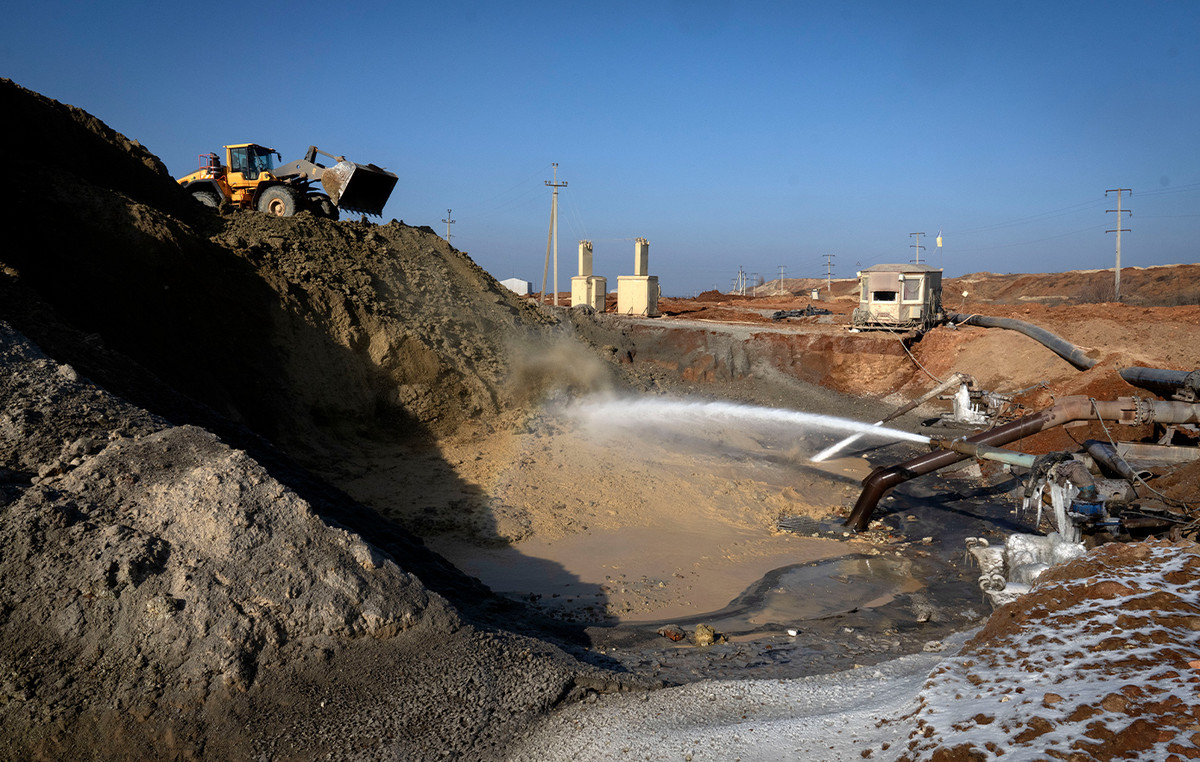Pakistani officials have warned it could take up to six months for deadly flood waters to recede in the hardest-hit areas of the country as fears mount over the threat posed by water-borne diseases including cholera and dengue.
Floods caused by record monsoon rains and melting glaciers in northern Pakistan’s mountainous regions have killed more than 1,400 people and affected an estimated 33 million more, destroying homes, roads, railways, livestock and crops. The damage is now expected to total more than $30 billion – triple the previous estimate of around $10 billion.
“Karachi is seeing an outbreak of dengue as hundreds and thousands of patients are reporting daily in government and private hospitals. Dengue cases this year are 50% higher than last year. With 584,246 people in camps across the country, the health crisis could wreak havoc if left unchecked,” Pakistan’s Climate Minister Sherry Rehman said on Monday.
Rehman warned that the country now faces the prospect of massive food shortages, due to the destruction of up to 70% of staple crops such as rice and corn, and is in urgent need of “food, tents and medicine”.
Rising flood waters also remain a risk, especially in hard-hit areas along the Indus River in Sinde province, with weather forecasts indicating continued rains are likely to extend into September.
In a statement on Monday, Sinde Chief Minister Murad Ali Shah said prolonged monsoon rains will delay efforts to clean up the water, with estimates ranging from 3 to 6 months in some of the worst areas. affected.
He added that the country’s largest freshwater lake, Manchar, has been overflowing since early September, with floodwaters impacting several hundred villages and more than 100,000 people.
“We are accelerating our efforts to provide doctors and medicines to the country’s 81 flood-affected districts. However, these estimates are still very early as new data is emerging,” Shah said.
Both the Pakistani government and United Nations Secretary-General António Guterres have blamed global climate change for worsening extreme weather that has caused “steroid monsoons” and submerged a third of the country’s land.
On a two-day visit to flood-ravaged Pakistan, Guterres expressed “deep solidarity with the Pakistani people for the devastating loss of life and human suffering caused by this year’s floods” and met with Pakistani Prime Minister Shehbaz Sharif about the disaster response.
Guterres on Friday urged the international community to support flood-stricken Pakistan, arguing that while the South Asian country’s contribution to climate change has been minimal, it is one of the most impacted by its consequences.
“Pakistan has not contributed significantly to climate change; the level of emissions from this country is relatively low, but Pakistan is one of the countries most impacted by climate change, it is the front line of the impact of climate change,” Guterres said after attending a briefing at the National Response Coordination Center. the Pakistan Floods (NFRCC) on Friday (9).
Source: CNN Brasil
I’m James Harper, a highly experienced and accomplished news writer for World Stock Market. I have been writing in the Politics section of the website for over five years, providing readers with up-to-date and insightful information about current events in politics. My work is widely read and respected by many industry professionals as well as laymen.







